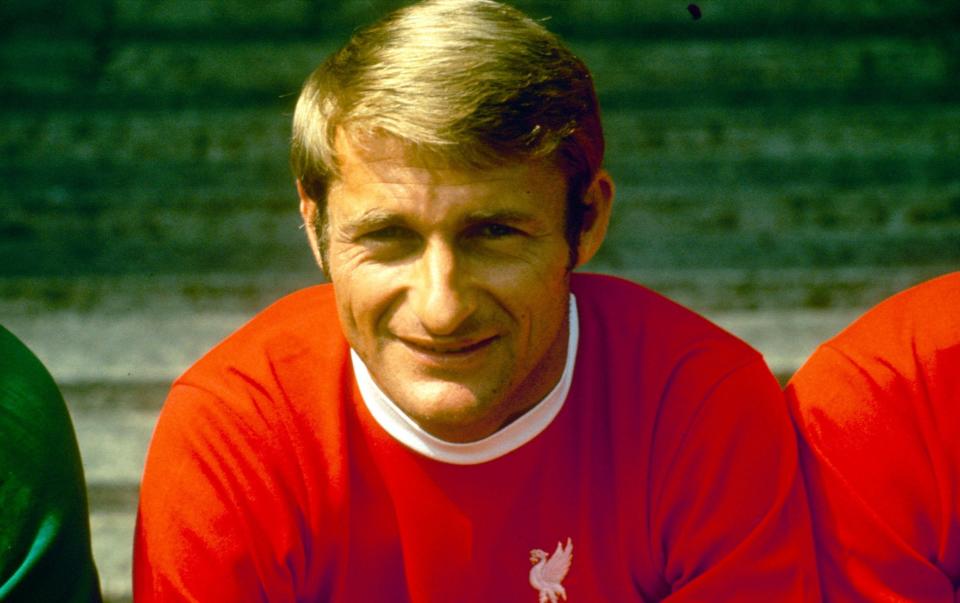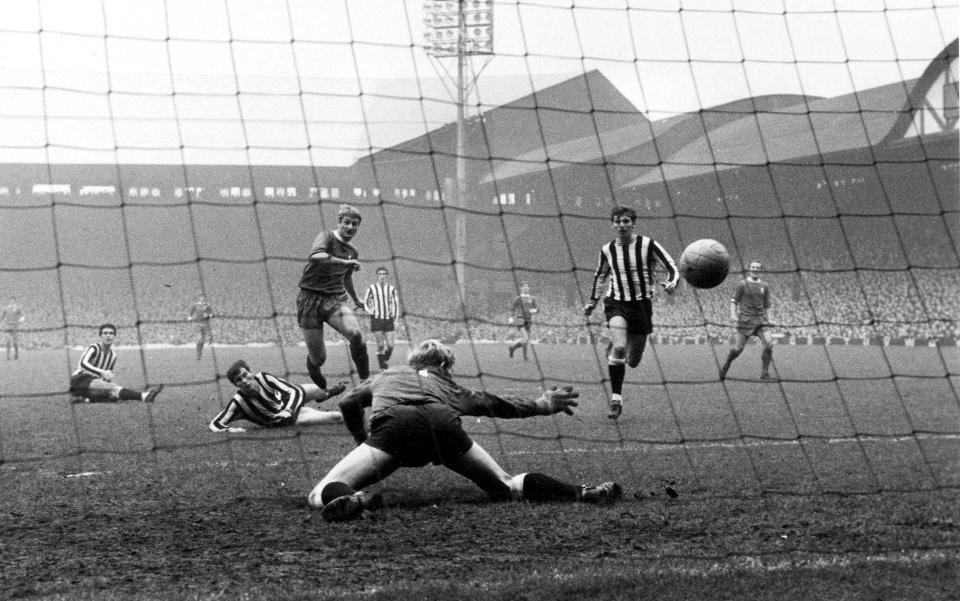Roger Hunt was the most reticent of England's '66 team - but he was more vital than Hurst or Greaves

Roger Hunt has died, the eighth member of the 1966 England team to leave us. Of all of the boys of '66, in the national memory cavorting still across the Wembley turf in victory, forever young, Hunt was perhaps the least obtrusive. Modest, unshowy, socially shy, he was not a man to preen. In many minds he remains the forward who graciously did not apply a finishing touch to his team-mate Geoff Hurst’s shot that hit the bar in the final, convinced as he was that it had crossed the line. Yet his value to both England and Liverpool was beyond doubt.
Undemonstrative he may have been but this was a player central to both club and country. Indeed, as a measure of his importance, for 10 years at Liverpool, as he helped them rise from the doldrums of the Second Division to dominate the league, along the way becoming the second-highest scorer in Anfield history as he accumulated 285 goals in 492 appearances, he was never once dropped.
Typically of Hunt, as a youngster he was not entirely convinced he could make it as a professional. Although, as he told the Anfield Wrap website in 2015, he was forever “football daft”, a failure at a trial with Bury as a youngster made him question his ambition. Instead, working in his father’s haulage business, and then later doing a stint in the army, he preferred to play as an amateur. Then one day, turning out for his local non-league side Stockton Heath (these days known as Warrington Town), he was spotted by the Liverpool scout Bill Jones (the grandfather of the future Anfield full-back Rob Jones). On Jones’s recommendation, he was signed on his 20th birthday. But on his first outing for the reserves, he had a rude awakening: he was exhausted midway through the second half. Realising that he now had to up his game, he engaged in a ferocious fitness campaign, under the direction of the future Liverpool manager Joe Fagan.
“All through my career I had that at the back of my mind,” he once said. “You’ve got to work, work, work.”
His industriousness made a mark. And when he was 21 he was given his first-team debut, stepping into the side after the ageing club stalwart Billy Liddell succumbed to injury. When, the following season, Bill Shankly was appointed manager, and began a rigorous clear-out of the existing squad, Hunt was the one who stayed. Shankly recognised, in his effort and work-rate, plus his dead-eyed ability in front of goal, that this was a player to build the future around.
In 1961, Shankly signed Ian St John. His style perfectly aligned with Hunt. Playing as an inside forward, Hunt would lurk behind his partner, ever ready to strike. Together the pair transformed the club. In 1962 Liverpool won the Second Division title. They then went on to win the First Division twice, in 1964 and 1966. For both championship wins, Hunt’s contribution was central: in '64 he scored 30 league goals, in '66, 31; he remains the club's leading league goal-scorer of all time. In between, in 1965, he scored the opening goal as Liverpool won the FA Cup for the first time in their history.
There is a story that encapsulates quite how important Shankly reckoned him. When he first joined the club, Hunt used to travel from his home near Warrington on the train and bus. But by the time the title was being won, he was earning enough to buy himself a car. Though on one occasion, he wished he had relied on his old travel arrangements. On his way in for a fixture against Manchester City, he got stuck in a huge traffic jam. As time ebbed away, he abandoned his motor and ran the last mile or so to Anfield, arriving just five minutes before kick-off. Shankly’s assistant Bob Paisley gave him a rollicking for being late. But Shankly was elsewhere, otherwise engaged. He had gone to the referee’s office claiming some invented calamity had struck and managing to persuade the official to delay kick-off. There was no way Shankly wanted to start without his main man.

And his importance to the national side was no less significant. Across the 1966 World Cup he played every minute of every England encounter, scoring three times en route to the final. When it came to the last game, Sir Alf Ramsey made it clear that if there was to be any choice of attacking player it was between Jimmy Greaves, recovering from an earlier injury, and Geoff Hurst. Hunt was a non-negotiable; he was going to start.
As for him not putting the ball away when Hurst struck for England’s second, mythology can be deceptive. Hunt was way too ruthless a finisher not to finish off a rebound. It was just that so convinced was he the ball had crossed the line, he momentarily turned away to celebrate, certain it was heading for the back of the net. When he realised it had bounced away, he was out of position to apply the required touch and a defender could clear the ball. Not that it mattered as the goal was given, but in later life he acknowledged it was very unlike him not to pounce.

When Shankly wanted to refresh the Liverpool team in 1968, Hunt, by then 31, moved on to Bolton, where he played until he retired in 1972. Although he had taken his coaching badges, he decided he was not temperamentally suited to management and instead re-joined the family firm, playing in friendly matches for another 20 years, as well as frequently watching from the stands at Anfield.
Oddly spurned for national honour until he received an MBE in 2000, at Liverpool they had long acknowledged his importance. Sir Roger, they dubbed him on the Kop. It was the appropriate title: polite, friendly, always solicitous in company, he was a footballing gentleman.

 Yahoo Sport
Yahoo Sport 





































